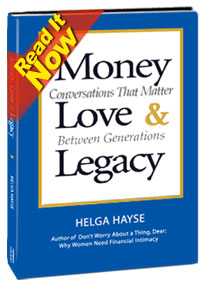An advanced directive is a legally sufficient document that gives health care providers and family members information and guidance regarding care of a patient who does not have the capacity to make decisions for him/herself. The patient can fill out this five-part document on his or her own and is not required to see an attorney. Once the document is completed, a patient can either take it to a notary public or have it signed by two witnesses.
Who should have one?
Advanced directives are for all of us. The document speaks for the patient when they can’t speak for themselves. Even though a younger person may not think it is important to have an advanced directive, one of the most common reasons young people visit emergency rooms is trauma, and in such cases individuals can lose the ability to speak for themselves. Furthermore, a single person living alone may have no one to speak for him/her regarding resuscitative measures.
Most people don’t want to contemplate being in that position. How do you convince them that they should consider an advanced directive?
As a physician, I have seen numerous family members come in distraught because their loved one was not in a position to make decisions on his/her own and hadn’t made their wishes known. An advanced directive really helps family members make sure they are taking care of their loved ones.
How is an advanced directive different from a do not resuscitate order?
A do not resuscitate (or DNR) order specifically states that under certain circumstances the patient does not want to have various resuscitating treatments, such as cardio-pulmonary chest compressions or being placed on a ventilator. An advanced directive may contain these same instructions, but may also add specific additional instructions such as: “I do want pain control” or “I do want to be resuscitated, intubated and I do want to have nutrition.”
The advanced directive also goes further, detailing what is to happen if the patient expires — including whether the patient wants to donate organs or have their body go to research.
How would someone get started?
While state law requires certain provisions to appear in your health care directive, there is no single form in use to document your wishes. For information, see http://oag.ca.gov/consumers/general/adv_hc_dir. An advanced directive form can be downloaded here: California Probate Code Sample Form, pdf.
Notify your doctor, family and close friends about your end-of-life preferences. Keep a copy of your signed and completed advance health care directive safe and accessible. This will help ensure that your wishes will be known at the critical time and carried out. Give a copy of your form to:
- The person you appoint as your agent and any alternate designated agents
- Your health care providers
- The health care institution that is providing your care
- Other responsible person who is likely to be called if there is a medical emergency
A person who has executed an advance health care directive may register information regarding the directive with the Secretary of State. This information is made available upon request to the registrant’s health care provider, public guardian, or legal representative. See http://www.sos.ca.gov/ahcdr/forms.htm.
Can you break out the five parts?
The first part names who you want to make the treatment decisions. The second part is the individual instructions you want carried out. The third part asks about organ donation. The fourth and fifth parts are for designating your primary care provider and including your signature, respectively.
Any final thoughts?
I have seen families whose loved one has not taken the opportunity to fill out an advanced directive where one was needed, and the decisions the family members had to make basically tore the family apart. Families are often thrust into situations they don’t expect. An advanced directive avoids much of the strife of very difficult family decisions. As a patient, I would not want my loved ones fighting amongst themselves about how to care for me. With an advanced directive, the medical issues are very clearly outlined.
From an article published in the Be Well @ Stanford News with Dr. Dana Welle, DO, JD, FACOG, FACS, physician risk consultant at Stanford Hospital and Clinics. https://bewell.stanford.edu/advanced-directive-dana-welles


